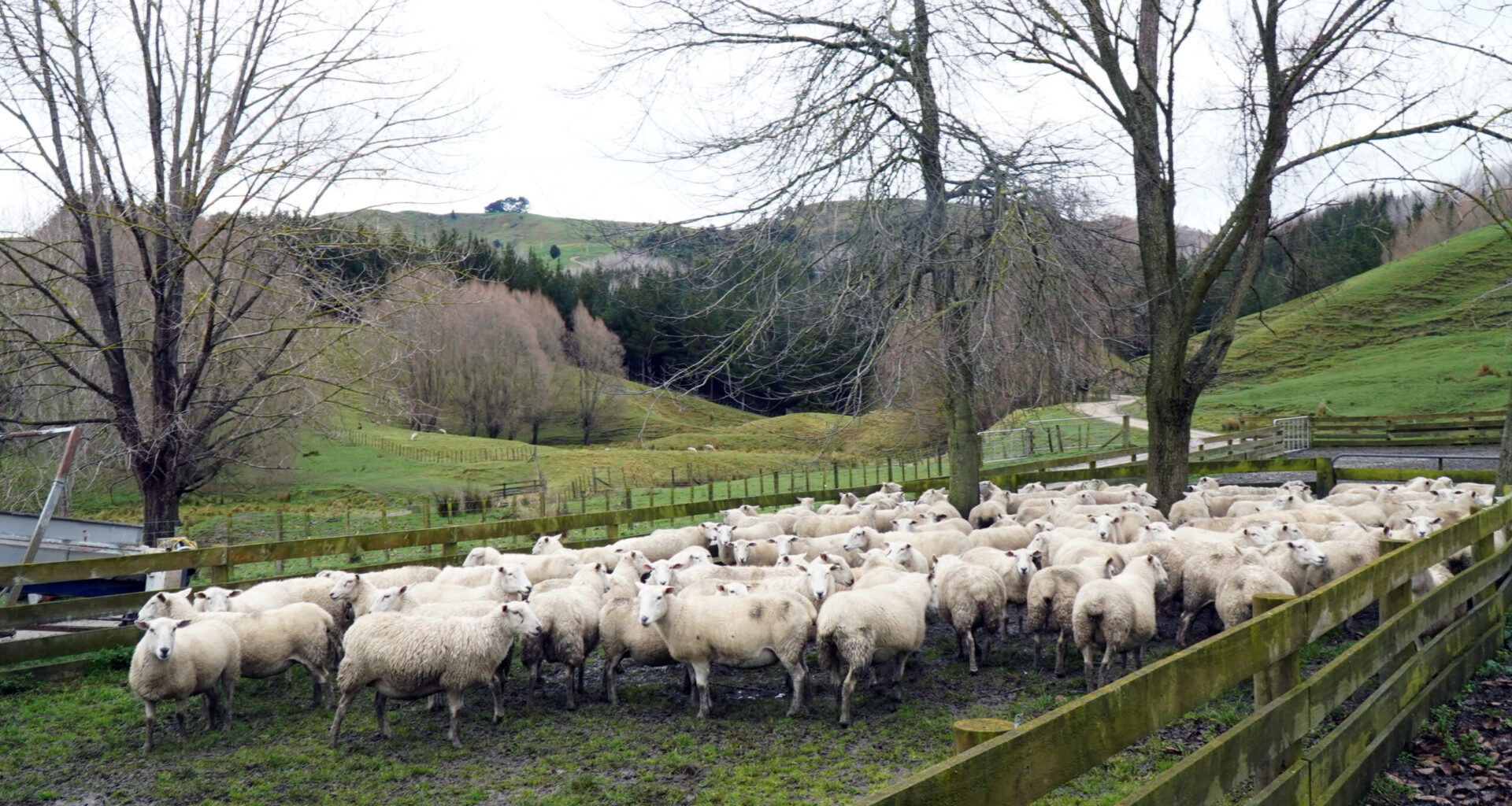Reading Time: 2 minutes
Follow the Farmers Weekly Podcast on Spotify and Apple Podcasts, or wherever you listen to podcasts.
A research programme tasked with finding the sheep of the future has reported some promising discoveries, three years into its workstream.
The Sheep of the Future programme is a collaboration between Focus Genetics, AgResearch, the Ministry for Primary Industries and Pāmu.
Stakeholders were updated on the programme at a field day at Pāmu’s Paeroa Farm in Central Hawke’s Bay last week.
Focus Genetics general manager Matt Johnson told the Farmers Weekly Podcast that the aim is to breed a sheep with traits that will make it more resilient in the future environment.
“We’ve got our core traits around productivity, but we’re looking into novel traits, so things like heat stress and heat tolerance.
“Is there any genetic correlation to different animals and their ability to manage stress and how they act in those stressful times?
“We’re looking at immune competence. Are there animals that have genetic ability to manage different sicknesses and illnesses, and can we breed towards that?
“And then we’re looking at the impacts of going to no-wool or fine wool breeds, and how we can ensure that we still get those productivity measures from them, and the survivability their product out the gate isn’t impacted by the changes that farmers may make.”

He said findings to date show it’s worth continuing the study.
“We’re at the stage now that we’re starting to see evidence of some of these [heat stress or immune competence] traits. We know enough now that we can continue an investment and look at incorporating them into breeds in the future.”
Another important aspect of the programme is that by using Pāmu farms, researchers get regular feedback from shepherds about how the sheep handle and how they progress through the farming year.
At Paeroa Farm, manager Richard Scott told attendees that some of the research mobs had significant advantages when it came to temperament and ease of mustering.
Whether those characteristics persist in future generations is yet to be seen.
“Science is a beautiful thing,” Johnson said. “It tells us a whole lot of facts and information. But also, farmers are out there who are making decisions based on animal behavior and what’s actually happening on farm.
“We’re able to bring the science to the farm to confirm what we’re seeing, not in a lab environment, but in a test environment. We’re really spoiled with our on-farm team, who’ve got experience over many years, who can see these things change.
“We have talked earlier today about sheep behavior, how they behave in the yards, how long they survive for, how they act on hills or mustering. So all those things could have an impact in a real farming world, and if they’re not blended together, the outcome might not be suitable.”
